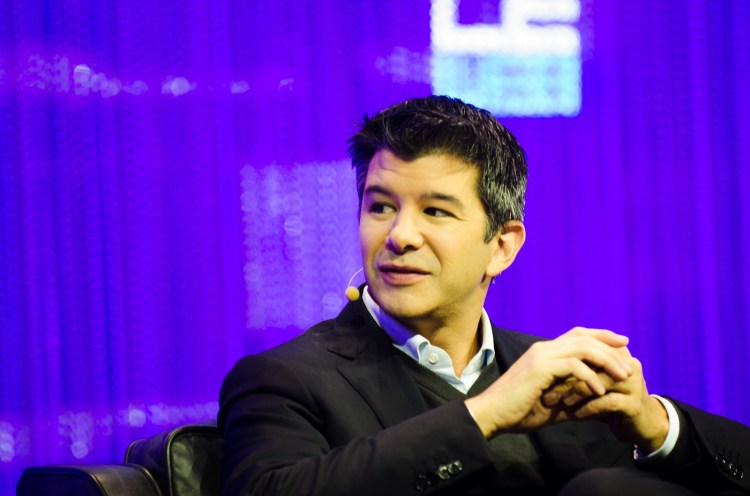Microsoft engineer Joshua Debner was taking an Uber in Seattle to meet a friend when the new notification popped up on the screen.
Uber wanted to play a game called Code on the Road.

Above: Uber’s Code on the Road challenge popped up during Joshua Debner’s Uber ride. Credit: Joshua Debner/Twitter
Uber confirmed to Business Insider that it’s found a new way to lure engineers to work for the fast-growing startup by testing their coding skills during an Uber ride.
Debner has no idea how the company knew he is an engineer. He has never talked to Uber, had a recruiter reach out, or submitted his resume to the ride-hailing company.
His Microsoft email address is not used on his account, and he has not used Uber for Microsoft business, nor was he going to or leaving from the Microsoft campus.
Uber insists that it is not using individual information to identify recruits, but that it is just identifying geographic areas where tech jobs are concentrated to find candidates.
The fact that an engineer like Debner saw the test means it’s working at identifying prospects that Uber might’ve missed.
“We are always looking for new ways to reach potential candidates that want to join our team and help us solve interesting problems. If you’re in a place where a lot of people work in tech,you may see our ‘Code on the Road’ challenge within the rider app,” a company spokesperson said. “The option to play gives interested riders the opportunity to show us their skills in a fun and different way – whether they code on the side or are pursuing a career as a developer.”
If they accept the test, Uber challenges the rider with three coding problems to solve, each with a 60-second countdown, and scores them based on their answers.
The questions he answered in the “Code on the Road” challenge were very generic coding interview questions and not tailored to his skills, Debner said. Instead, it seemed like an easy way to find candidates who might be interested and hadn’t thought of working at Uber before.

Above: Screenshots of what Uber’s Code on the Road challenge.
Credit: Joshua Debner/Twitter
“I think it’s kind of a crapshoot either way,” Debner told Business Insider. “I don’t know if answering a timed 60-second quiz in a dark Uber when the driver is trying to talk to you is the best way. If someone passes all of it, it’s kind of like a free phone screening.”
If they’re good, the app prompts them to click a button to get in touch.
Debner did hit the prompt to submit his results to Uber just to see what would happen. The company sent him an email that gave him a link to apply if he’s interested (he’s not), but he hasn’t heard from them otherwise.
While Debner is in Seattle (and just happens to be a Microsoft employee), Uber has been running the hacking challenges in cities like Seattle, Austin, Boston, Denver, and Portland, which have a large number of tech workers.
Uber is not the first company to hide a coding challenge into its product. It’s already programmed an #UberBot to challenge programmers on Codefights. Google has its own secret programming test that is prompted when people search for certain programming-related terms.
This post first appeared on Business Insider.
VentureBeat's mission is to be a digital town square for technical decision-makers to gain knowledge about transformative enterprise technology and transact. Learn More

